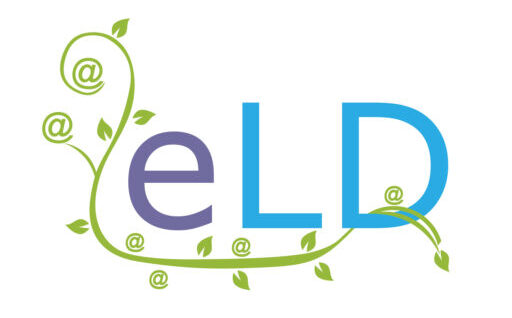Using plugins to elevate your LMS
While Moodle core comes with just about everything you’ll need for a basic learning environment, its modular nature is where it really stands out – plugins take full advantage of this and are the essential building blocks you need to really make Moodle work for you.
Where to find Moodle plugins
If you have experience with a site-building kit like WordPress, you’ve likely heard the term “plugin” before. But for those unfamiliar, a plugin is a self-contained suite of software designed for a specific purpose, which is used to add a new feature (or set of features) to an existing site.
Moodle’s modular architecture is set up for the easy installation and removal of plugins. Everything is kept neatly partitioned while still allowing for different parts of the site to talk to one another. The best part is that you can find a wide variety of plugins to suit your needs for absolutely no cost at all. The Moodle plugin directory holds a searchable collection of categorised options, developed and maintained by the wider Moodle community.
Types of Moodle plugin
Some examples of common plugin categories include blocks (which can be placed on the user’s dashboard or within courses), course formats (used to change the presentation of content within a course) and activities (the basic building blocks of courses). They can be designed to complement an existing component of Moodle – like additional question types, which are used to build on the core Quiz module – or may introduce an entirely new set of functions to your environment. Additionally, even though many only go as far as making cosmetic changes to your site, themes also fall under the broad definition of a plugin.
Top Moodle plugins grouped by goal
The plugins you’ll need will depend entirely on how you want your environment to look and function – after all, you’re the expert! But to help you know where to get started, here are a few key plugin recommendations grouped by common goals.
1. Site content customisation
One of Moodle’s greatest assets is its customisability, and there are a number of easily configurable themes available via the Moodle Plugins directory that don’t require any prior knowledge of HTML or CSS to set up.
Moove offers a sleek, modern look with an improved dashboard, full customisation options for colour and branding, and a compact footer. Furthermore, the theme is designed with accessibility in mind, featuring an accessibility toolbar and support for OpenDyslexic font.
If you’re looking for a theme with a focus on learner journey, LearnR is an excellent choice. Perfect for use in schools and higher education, LearnR provides a number of styling improvements, as well as a teacher-specific dashboard to provide tutors with a one-stop hub for all of their course management needs.
Almondb builds a variety of extra customisation options into your Moodle site, featuring a responsive front page and a number of pre-set blocks (such as advertising banners). As an added bonus, Almondb integrates with a free page plugin, allowing you to add custom pages to your Moodle instance for easy organisation of your non-course content.
2. Course format customisation
Just as vital to learner experience as your content is the format in which it’s presented to your users. Course format plugins offer an alternative way to structure your course over what Moodle already has in core. These formats come pre-built and feature a number of user-friendly customisation settings, so there’s no need to dig into your site’s CSS to get your courses looking exactly how you want them to.
One of the most popular additional course format plugins, Tiles presents course content as a clickable grid instead of a vertical list of sections. Tiles offers a high level of customisability, placing the colour scheme, tile icons and course progress visibility all entirely within your control.
A problem that plagues Moodle course design is the dreaded “scroll of death”; the collapsed topics format deals with this neatly by breaking content up into expandable sections, hiding them under accordion-style drawers that learners can navigate with ease.
Similarly to Tiles, the Grid plugin displays links course topics as customisable icons in a grid, with the content itself being presented in a “pop-up” style. Ideal for visual learners, and for courses with a non-linear learning pathway.
3. Course creation simplification
Now you’ve got access to your Moodle site, where do you start when it comes to creating courses? Like Moodle itself, courses are modular, with activities acting as your basic building blocks: from Quizzes, to Books, to virtual sessions in the form of BigBlueButton rooms. You can also find a number of additional plugins on offer to help take your course creation to the next level.
This fully configurable block is a quick and easy way to add an element of gamification to your Moodle courses. Users gain experience points for completing activities and are rewarded by “levelling up”, adding incentive for learners to fully engage with the course content.
Fully integrated with Moodle’s completion tracking system, the custom certificate module allows you to award your learners with a PDF certificate that can be customised in line with your preferred assets, colours and branding. Perfect for compliance-based training.
Both easy to create, and engaging to learn from, H5P has quickly become an essential in many modern e-learning environments. There are a number of templates available for free, from quizzes to interactive presentations. And handily, H5P activities are now integrated as part of Moodle core (version 4.1 LTS onwards).
4. Question type flexibility
One of the most popular activity types, Moodle’s Quiz module is a quick and convenient way to bake interactivity and learner feedback into your course structure. Quiz comes pre-loaded with a variety of standard question types designed to suit you and your learners’ needs (such as multiple choice, true or false, and drag and drop exercises). Like Moodle itself, Quiz is designed with a modular structure in mind, allowing for the seamless integration of additional plugins to expand your question type repertoire.
The Formulas question type is ideal for more complex calculations questions, or those with multiple different parts. The plugin supports the use of random variables picked from a user-specified set, and can be set up to include unit functionality.
A simpler version of the Cloze question type, Gapfill allows for the creation of fill-in-the-blanks style questions without the need for complex syntax. The plugin currently supports dropdown, drag-and-drop, and missing word questions.
Designed for use in fields such as maths and engineering, the STACK question type offers both multiple choice and free response type questions and uses an underlying computer algebra system to offer instant grading and feedback.
5. Communication functionality
Maintaining active and easily accessible communication channels is key to fostering an engaging learner experience. Whether you’re transitioning from face-to-face or you already have a foothold in the world of e-learning, Moodle makes it easy with a site-wide instant messaging system as standard, as well as a number of tools to help build on that existing functionality.
ForumNG sits on top of Moodle’s existing forum structure, adding a wealth of new features and offering more control over student access than core Moodle messaging. Perfect for both group Q&As and 1-to-1 discussions.
Another alternative to Moodle’s built-in messaging system, the Mail plugin offers a familiar email-like interface for user messaging. In addition, Mail allows for tighter messaging restrictions, allowing contact only between participants of the same course.
The Re-engagement plugin provides the facility to send students tailored reminders to complete specific target activities. This way, students at risk of falling behind receive a gentle push to encourage them to continue engaging with course content.
Moodle plugin FAQs
1. Download your plugin as a ZIP
2. Go to Site administration > Plugins > Install plugins > Choose a file…
3. Upload the ZIP you saved in step 1
4. Click Install plugin from ZIP file (Moodle will run prechecks to make sure prerequisites are met)
5. When prompted, click Continue to install the package
Yes! If you’re an e-Learn Design client, you can take advantage of the
Quick Fix Promise. Just raise a request through your
helpdesk account, or email helpdesk@e-learndesign.co.uk
Once you’ve got your ZIP downloaded, from start to finish, no more than a few minutes.


